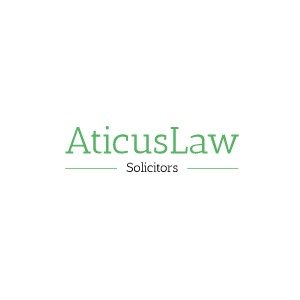Best Land Use & Zoning Lawyers in Wilmslow
Share your needs with us, get contacted by law firms.
Free. Takes 2 min.
Free Guide to Hiring a Real Estate Lawyer
List of the best lawyers in Wilmslow, United Kingdom
About Land Use & Zoning Law in Wilmslow, United Kingdom
Land use and zoning law in Wilmslow, UK, falls under the broader context of UK planning law. It is concerned with how land and property are used and developed, and it places restrictions on certain types of building and development activities. Zoning refers to the division of land into zones where certain land uses are permitted or prohibited. The local authority, Cheshire East Council, holds the responsibility for setting out land-use policies and making decisions about land-use application in Wilmslow.
Why You May Need a Lawyer
Engaging a lawyer becomes important when you need assistance with planning permission applications, especially for building complex structures or changing the use of a property. Lawyers can also help to navigate zonal disputes, land use violations, opposition to planning applications, and appeals against planning decisions by the local council. Moreover, understanding the complexities of environmental impact assessments, conservation laws, and property rights can be overwhelming without professional legal assistance.
Local Laws Overview
In Wilmslow, like the rest of the UK, the Town and Country Planning Act 1990, along with local planning policies adopted by the Cheshire East Borough Council, govern land use and zoning. These laws dictate what can be built where, how a building is used, and set out the process for obtaining planning permission. They also look to protect natural and cultural heritage, including areas within the Green Belt, and Listed Buildings and Conservation Areas.
Frequently Asked Questions
1. Do I need planning permission for every type of construction?
No, not every type of construction requires planning permission. Smaller development projects like minor interior alterations, building maintenance, or small extensions often fall under the category of 'permitted development'.
2. Can I convert my residential property into commercial in Wilmslow?
Changing the use of a property often requires planning permission, especially significant changes like converting a residential property into commercial. This ensures that the change conforms to zoning laws and doesn't negatively impact the character or amenity of the neighbourhood.
3. How can I appeal a refused planning application?
If a planning application gets refused, you can lodge an appeal through the Planning Inspectorate. However, legal help is often recommended given the complexity of these matters.
4. What happens if I violate zoning laws?
Violating zoning laws or undertaking development without required planning permission can lead to enforcement action by the local council, including fines or orders to remove or cease the unauthorized development.
5. What is a Green Belt?
The Green Belt is a policy used in the UK to control urban growth, protecting the countryside from encroachment, preserving the character of historic towns, and encouraging the recycling of derelict urban land.
Additional Resources
For additional support and information, the Cheshire East Council website provides planning guidance and links to current policies and plans. The UK Government's own online portal, GOV.UK, also provides comprehensive guidance on planning permissions and zoning laws in the UK.
Next Steps
If you require legal assistance with land use or zoning issues, consider consulting with a solicitor who specialises in planning law. You may wish to research reputable local law firms, and contact them for initial consultations. Ensure to prepare all relevant documentation, including any official correspondence, maps, and planning documents.
Lawzana helps you find the best lawyers and law firms in Wilmslow through a curated and pre-screened list of qualified legal professionals. Our platform offers rankings and detailed profiles of attorneys and law firms, allowing you to compare based on practice areas, including Land Use & Zoning, experience, and client feedback.
Each profile includes a description of the firm's areas of practice, client reviews, team members and partners, year of establishment, spoken languages, office locations, contact information, social media presence, and any published articles or resources. Most firms on our platform speak English and are experienced in both local and international legal matters.
Get a quote from top-rated law firms in Wilmslow, United Kingdom — quickly, securely, and without unnecessary hassle.
Disclaimer:
The information provided on this page is for general informational purposes only and does not constitute legal advice. While we strive to ensure the accuracy and relevance of the content, legal information may change over time, and interpretations of the law can vary. You should always consult with a qualified legal professional for advice specific to your situation.
We disclaim all liability for actions taken or not taken based on the content of this page. If you believe any information is incorrect or outdated, please contact us, and we will review and update it where appropriate.








